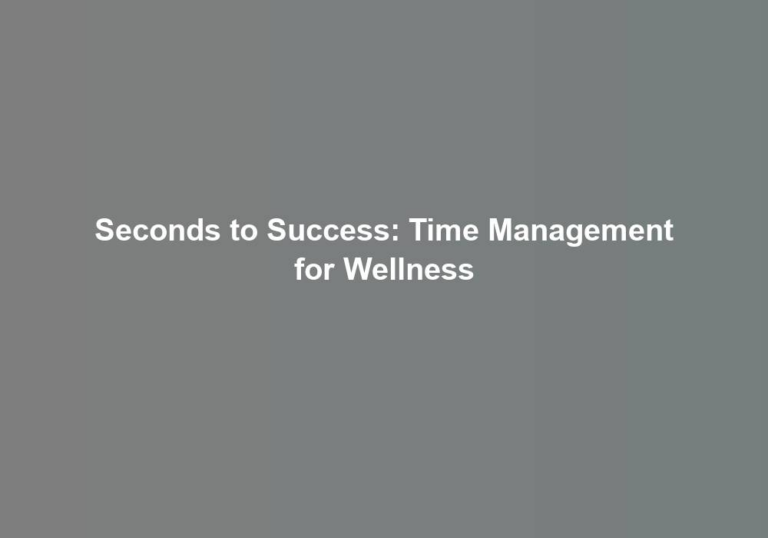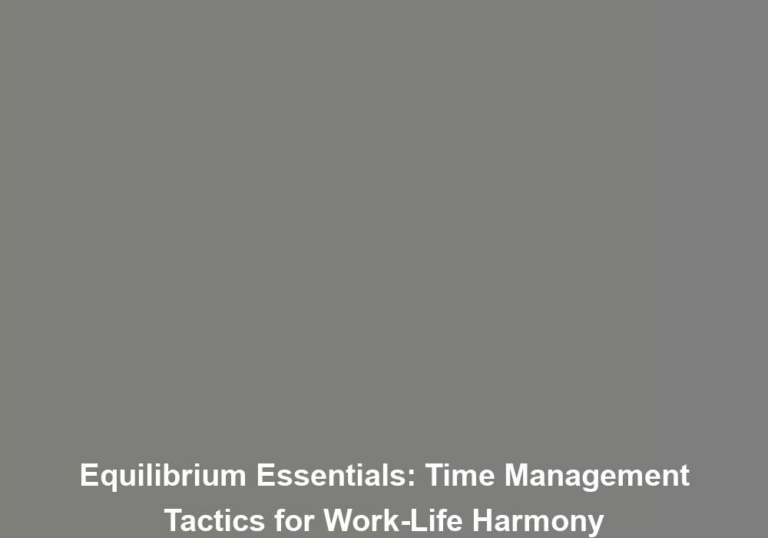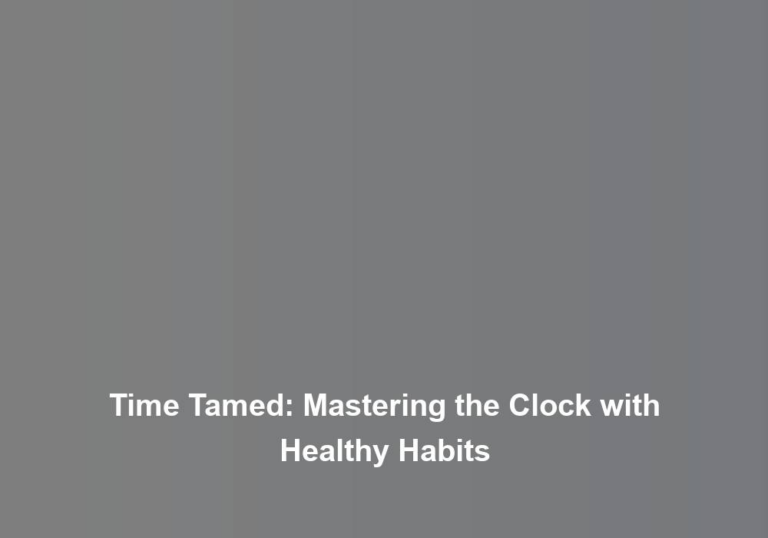Pacing Productivity: Advanced Time Management Techniques for High Achievers
Do you ever feel like thereG??s a secret to productivity that high achievers seem to have unlocked? YouG??re not alone. The truth is, there are advanced time management techniques that can significantly enhance your productivity, allowing you to achieve more in less time. But what are these techniques, and how can they be applied to your daily routine? Well, the good news is that youG??re about to discover some powerful strategies that can revolutionize the way you approach your work and personal tasks.
Prioritizing Tasks
How do you determine which tasks are the most important to focus on in your day-to-day activities? Task assessment is crucial for effective time management. Start by evaluating the urgency and impact of each task. Consider deadlines and the consequences of not meeting them. By prioritizing tasks based on their importance and deadlines, you can ensure that you are focusing on the most critical activities.
Deadline management is an essential aspect of prioritizing tasks. When you have multiple tasks at hand, itG??s vital to consider their respective deadlines. Identify which tasks have imminent deadlines and require immediate attention. By organizing your tasks based on their deadlines, you can allocate your time and resources efficiently. This approach allows you to tackle urgent tasks while also making progress on those with longer deadlines.
As a high achiever, itG??s natural to want to excel in every aspect of your life. However, itG??s important to recognize that not all tasks hold the same weight. Task assessment enables you to distinguish between essential and less critical activities, allowing you to direct your efforts where they are most needed. Effective deadline management ensures that you meet critical timelines, preventing last-minute rushes and reducing stress. By mastering the art of prioritizing tasks, you can enhance your productivity and achieve your goals with confidence.
Time Blocking
Incorporate time blocking into your daily schedule to proactively allocate specific time slots for focused work on high-priority tasks. Time blocking is a powerful technique that helps you manage your day effectively, enabling you to make the most of your time and accomplish your goals efficiently. By breaking your day into distinct segments for various tasks, you can enhance your productivity and maintain a sense of control over your schedule.
When implementing time blocking, consider the following techniques:
- Task Batching: Group similar tasks together during specific time blocks to minimize context switching and maximize efficiency.
- Productivity Zones: Identify your most productive times of the day and allocate your high-concentration tasks to these periods for optimal results.
- Focus Sprints: Allocate short, intense bursts of time to tackle challenging tasks, followed by brief breaks to maintain energy and focus.
- Energy Management: Schedule tasks that require different energy levels during corresponding time blocks to leverage your natural rhythms and maximize productivity.
Eliminating Time Wasters
To optimize your time management efforts, identifying and eliminating time wasters is crucial for maintaining focus and productivity throughout your day. Conducting regular time audits can help you pinpoint where your time is being inefficiently spent. Look for patterns and habits that are hindering your productivity. Once identified, apply efficiency hacks to streamline your workflow. This could include automating repetitive tasks, utilizing productivity apps, or setting specific time limits for activities.
Procrastination busting is another key aspect of eliminating time wasters. Recognize when youG??re procrastinating and learn to address it head-on. Break tasks into smaller, manageable steps and set deadlines to keep yourself on track. Additionally, implement focus strategies such as the Pomodoro Technique, which involves working in focused bursts followed by short breaks. This can help you maintain high levels of concentration and avoid time-wasting distractions.
ItG??s essential to evaluate your daily routines and habits. Are there activities that consume your time without adding value? Are there distractions that consistently derail your focus? By being mindful of these factors, you can make conscious choices to eliminate or minimize them. This might involve setting boundaries with social media, limiting non-essential meetings, or creating a designated workspace to minimize interruptions.
Strategic Delegation
Consider delegating tasks that are outside your core competencies to free up time for more strategic activities. Strategic delegation involves not just offloading tasks, but also ensuring that they are completed effectively and efficiently. HereG??s how you can strategically delegate tasks:
-
Identify Tasks: First, identify tasks that are time-consuming and outside your expertise. These are the tasks that can be effectively delegated to others.
-
Effective Communication: Clearly communicate the tasks, expectations, and deadlines to the person or team to whom you are delegating. This ensures that everyone is on the same page and understands the requirements.
-
Accountability Structures: Establish accountability structures to monitor the progress of the delegated tasks. This can include regular check-ins, progress reports, or milestone reviews to ensure that the tasks are on track.
-
Feedback and Support: Provide necessary feedback and support to the individuals or teams handling the delegated tasks. This helps in ensuring that the tasks are completed satisfactorily and allows for continuous improvement.
Effective delegation not only frees up your time but also allows others to develop new skills and take on more responsibilities. It fosters a sense of teamwork and shared goals within the organization. By effectively communicating tasks, setting up accountability structures, and providing necessary support, you can ensure that strategic delegation leads to improved productivity and overall success.
Mindful Decision Making
When making decisions, itG??s important to remain attentive and deliberate, considering the potential impact on your goals and priorities. Intentional focus is key to mindful decision making. By consciously directing your attention towards the specific factors at play, you can make choices that align with your values and objectives. Thoughtful planning further enhances this process, allowing you to anticipate potential outcomes and weigh the consequences of your decisions.
As a high achiever, your desire to belong to a community of like-minded individuals who value productivity and success is evident in your commitment to making mindful decisions. By fostering intentional focus, you can ensure that your choices are aligned with your long-term aspirations, and by incorporating thoughtful planning, you can navigate potential obstacles and seize opportunities that propel you towards your goals.
In the realm of mindful decision making, intentional focus empowers you to filter out distractions and hone in on the essential elements that should inform your choices. It enables you to consider the implications of your decisions on your personal and professional endeavors, reinforcing your sense of belonging within a community of high achievers who are also deliberate in their decision-making processes. Thoughtful planning complements intentional focus by providing a structured approach to considering various options and their potential consequences, aiding you in making decisions that resonate with your overarching objectives.
Conclusion
So, as you wrap up your day, take a moment to reflect on the ways youG??ve optimized your time. Remember, itG??s all about finding those little pockets of opportunity and making the most of them. Keep up the great work and keep finding new ways to be even more efficient. YouG??ve got this!







